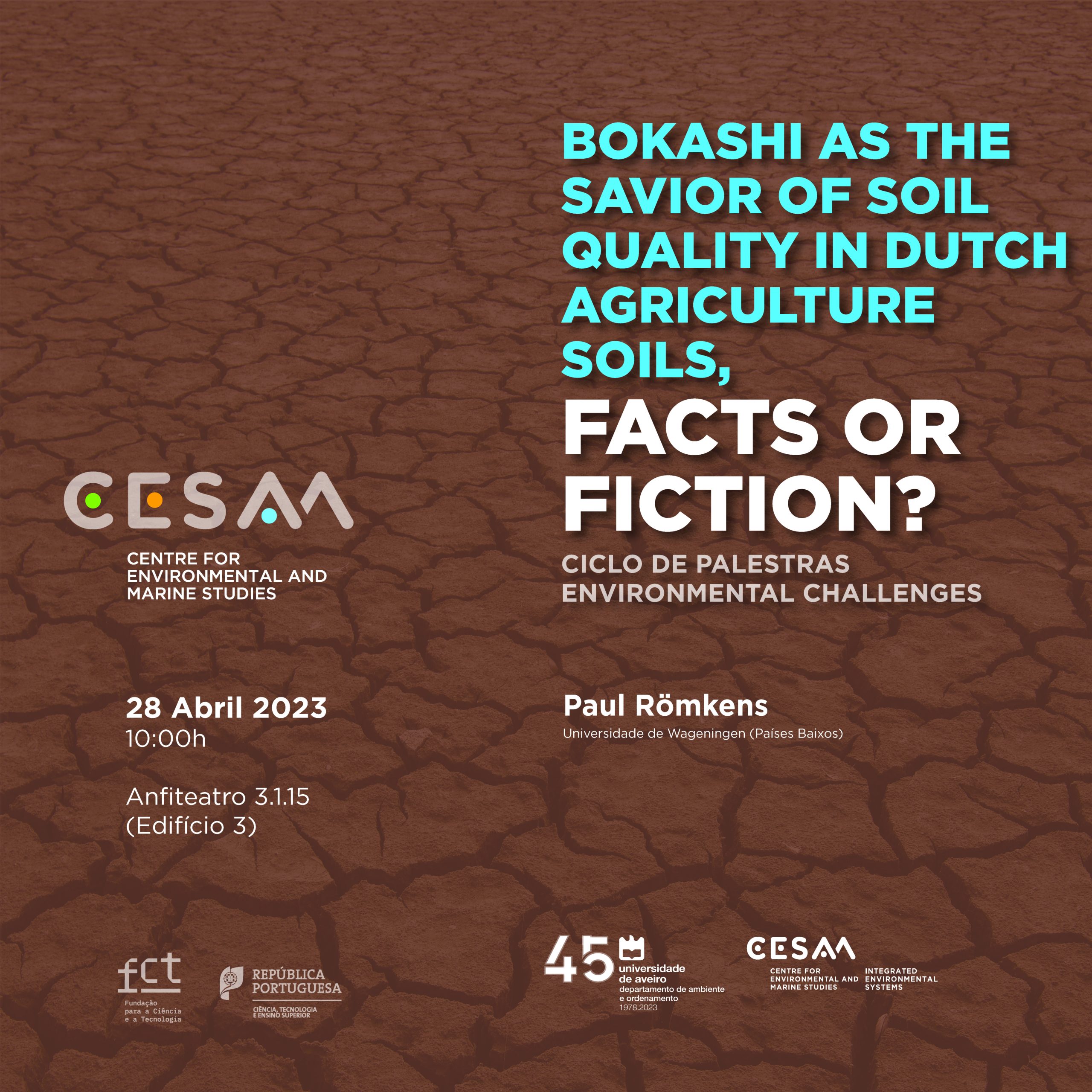
The second edition of this lecture series held at CESAM, under the theme of Integrated Environmental Systems (IES), will feature the presence of researcher Paul Römkens from Wageningen University. This lecture will take place on April 28, 2023, at 10:00 AM, in room 3.1.15 (building 3), and all interested parties are invited to participate, with no registration required.
In this lecture titled “Bokashi as a Savior of Soil Quality in Dutch Agricultural Lands: Fact or Fiction?”, Paul Römkens will talk about the introduction of Bokashi as a potential new source of carbon and nutrients in Dutch agriculture and its impact on the soil.
According to the researcher: “Dutch agriculture is known for its high intensity, but currently, there are concerns about soil quality degradation, evidenced by alleged reductions in soil carbon content and microbial life, as well as impacts on crop quality, including micronutrient loss. To maintain or improve soil quality, farmers turn to the use of compost, among other things. However, this is quite expensive, and more importantly, about 80 to 90% of available compost in the Netherlands is already used in agriculture. Recently, a new potential source of carbon and nutrients has emerged: Bokashi. Basically, Bokashi is a fermented organic material produced from grass clippings or urban green waste, mainly leaves. However, it is currently not possible to use grass clippings, for example, from urban parks and natural areas, as they do not meet the required “end-of-waste (EOW) status” demanded by law. The reasons for this are the potential presence of contaminants (metals, as well as other relevant chemicals, including PAHs, plant protection chemicals, and PFAS, to name a few). Furthermore, there is little diverse information on the efficacy of this material in improving soil physical and microbial properties.”
To this end, Wageningen Environmental Research, which is part of Wageningen University and Research (WUR), in collaboration with researchers from Wageningen Plant Sciences, is conducting a 4-year experimental program to assess the true quality of this material and its impact on the soil. In this lecture, some of the most recent results (2021-2023) of this screening will be shared, based on data from 60 pilot farms in the Netherlands and 3 experimental WUR farms. The results are currently being used to assess the agricultural potential of this material (as a fertilizer or carbon source), as well as other merits (impact on soil life), and environmental risks.